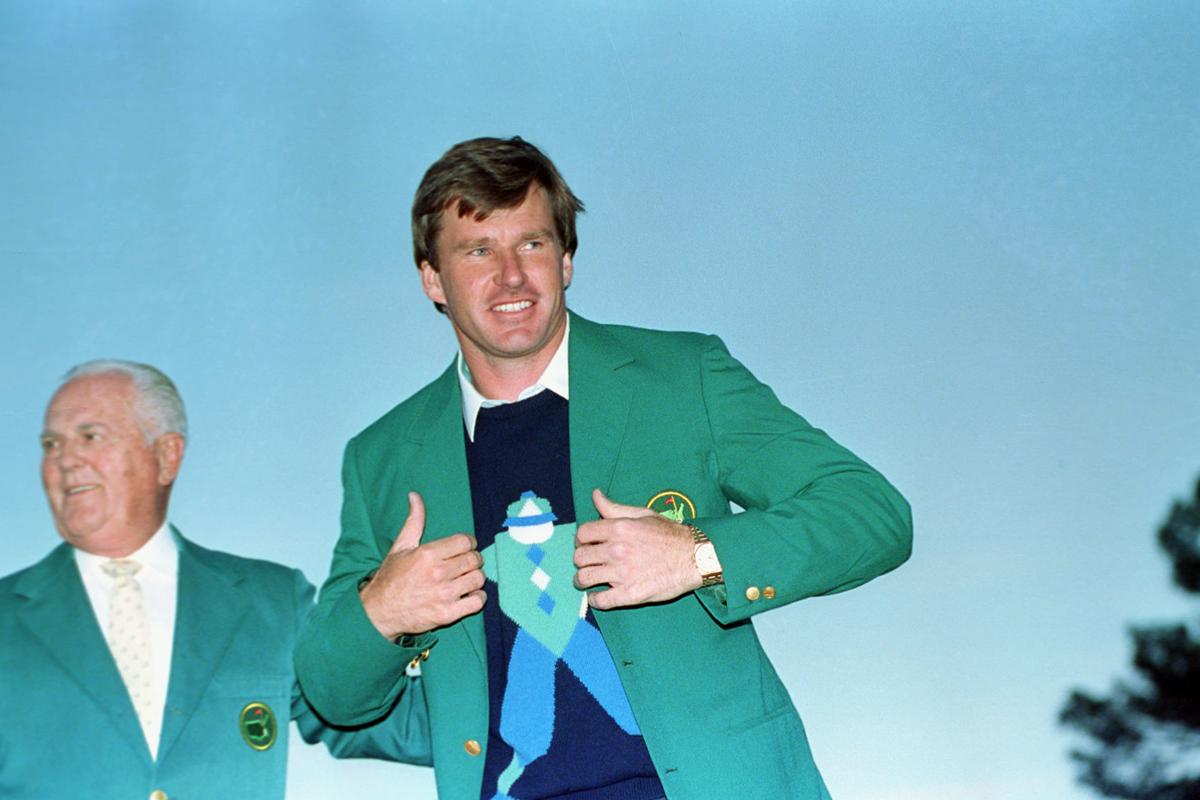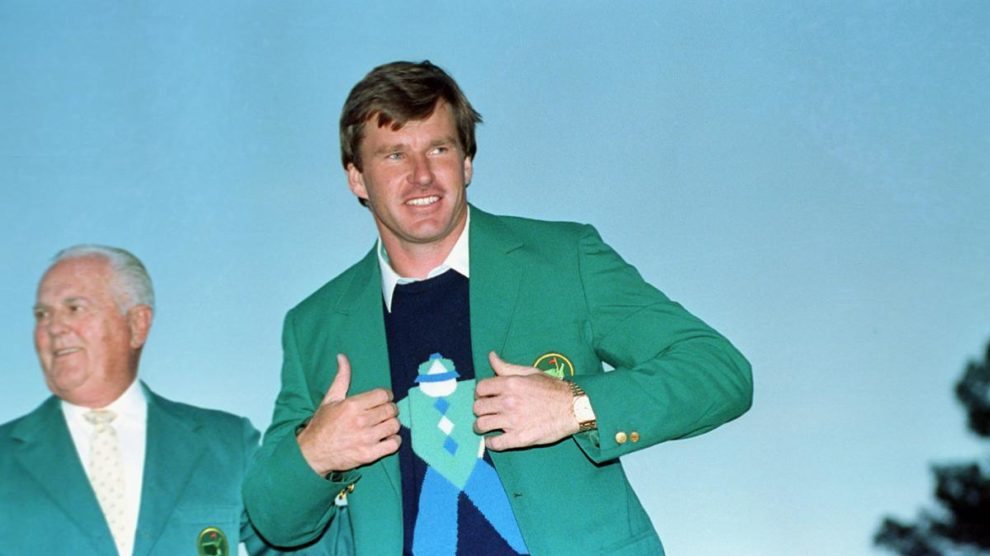A couple of months ago, the guys at No Laying Up released a podcast in which they presented their nominations for the most underappreciated golfers of all time. As I listened, there was one name that I felt sure would come up.
The format dictated that there would be 15 golfers under consideration, so I waited patiently for the personality I was confident was going to have a spotlight shone on his glittering career. But as the podcast wore on and the likes of Billy Casper, Lee Trevino and Vijay Singh were given their big moments, my hopes diminished and were eventually dashed.
Sir Nick Faldo did not get a mention.
Now clearly, saying that a golfer is not underappreciated is not a slight on their career. It could be that I’m misreading the opinion of the golfing public and that Faldo is appreciated exactly as much as is deserved for a six-time major winner. But it certainly doesn’t feel like Faldo gets much credit for being, in major championship-winning terms at least, Europe’s most successful male golfer of the past 100 years.
Perhaps the reason that I find Faldo’s career so surprisingly impressive was that for golf fans of my generation, he is a familiar face, but we do not quite remember his prime years, which are shrouded in the mystique that comes from the vague understanding that someone was good, without knowing more than the basics of their accomplishments. By the time Tiger Woods won the Masters in 1997 – around the time my golf-related memories begin – Faldo was a few months away from turning 40 and, as has often been noted, the placing of the Green Jacket on the 21-year-old Woods’ shoulders turned out to be a symbolic passing of the baton, as Sir Nick’s career faded in subsequent years.
Before going any further, I should make clear that I’m not talking about Faldo’s post-playing career. His Ryder Cup captaincy was, for whatever reason, a failure, and his broadcasting is probably best described as an acquired taste. As a player, though, there’s a strong case that Faldo was the alpha of the golfing world in the decade immediately preceding the Tiger era.
Although nobody dominated the golfing world from the late 1980s to mid/late 1990s in the way that Tiger would then later do, Faldo’s six majors during that span didn’t even come close to being matched by any rival. Seve Ballesteros won the last of his five majors at Royal Lytham in 1988, Nick Price picked up three majors within three years in the early 1990s, and the likes of Sandy Lyle and Curtis Strange made it to the majors’ winning circle on a couple of occasions each.
So why isn’t Faldo seemingly as appreciated as golfers with similar major records, such as Phil Mickelson or Seve Ballesteros? I think it probably comes down to three main factors: the nature of some of Faldo’s major wins, his playing style and his personality.
There could be a perception that Sir Nick was a big fish in an era in which men’s golf was a relatively small, poorly-stocked pond. It’s probably fair to say that Faldo’s success didn’t come in a golden age for golf. However, his major record stands up scrutiny in sheer consistency as well as victories. In the 38 majors in which Faldo competed between 1987 and the end of 1996, he had 16 top-five finishes, including those six wins. That’s one more top-5 than Mickelson had between his first green jacket in 2004 and his Open Championship victory in 2013, which coincidentally also encompassed 38 major tournaments. (Admittedly, Phil has 27 top-5s in majors overall to Faldo’s 19, as Mickelson’s longevity far exceeds Sir Nick’s).

Even compared to the very greatest players in the modern era, Faldo’s ability to work his way towards the upper echelons of major championship leaderboards during his heyday is almost unparalleled. Between his runner-up finish at the 1988 US Open (where he lost to Strange in a play-off) and his T-2 at the 1992 PGA Championship, Faldo finished inside the top 20 every single time. That’s 19 consecutive major championships. Tiger’s best top-20 streak is 14 (1998 Masters to 2001 US Open). Both men come up well short of Jack Nicklaus’ run of 33 consecutive top-20s between 1970 and 1978 (wow, by the way), but then again nobody’s claiming that Faldo is the GOAT. Even luminaries such as Gary Player, Tom Watson and Sam Snead threw in a bad week more often than Faldo, although Ben Hogan had a streak of 18 top-10s either side of his life-threatening car accident.
As a golfer, Faldo’s main strength was his mental fortitude, which served him well as others capitulated under the pressure of major tournaments. Of the Englishman’s three Masters wins, two came in playoffs -- the first in 1989 when Scott Hoch missed from 18 inches to win (with Faldo wearing what appeared to be an ugly Christmas sweater in April) and the second a year later when Raymond Floyd’s ball found the pond on 11, the second playoff hole. The third win, in 1996, was of course made possible by Greg Norman’s infamous final-round collapse, in which he shot 78. However, Faldo didn’t exactly scrape home. He shot the low round of the day, a 67, to win by five. Faldo’s 12-under par total would have been enough to either win or force a playoff in all but six of the 59 Masters tournaments held up until that date.
The notion that Sir Nick had his major wins handed to him on a plate therefore doesn’t hold much weight with me. Apart from the fact that his three Open Championship wins were won in more routine fashion than his green jackets, the fact is that Faldo consistently gave himself chances to win tournaments, and he had the ability to not screw up when the trophy was on the line. There is probably no better quality for any professional golfer to possess.
I mentioned that Sir Nick’s major championship résumé is similar to Phil’s and Seve’s (five wins each), but Faldo was never beloved by golf fans in the way that these other two greats of the game were and still are today. The reason for this is not necessarily personality – all three could probably be charitably described as being ‘complex’ individuals off the course – but playing style. Whereas Phil and Seve delighted fans with seemingly impossible recoveries and rollercoaster-ride rounds, Sir Nick was known as “a plodder who can make par after par,” in the words of one newspaper report the day after his defeat in the 1988 US Open. The journalist was probably thinking of Faldo’s Open Championship win the previous year, in which he made 18 straight pars in the final round to win by a single stroke. On that occasion, the Pittsburgh Post-Gazette expressed much the same view, but rather more esoterically, by calling Faldo “as changeless as the pork pie."
There is probably a kernel of truth in this characterisation, but again, I only agree to a certain extent. For one thing, pars aren’t intrinsically less entertaining than birdies or bogeys – often a thrilling par save from a tight spot can be the most enjoyable golf to watch. But even leaving this aside, Faldo certainly had the ability to go low at times, such as at the 1996 Masters final round.
At the 1990 Open Championship, Faldo’s 18-under total on the Old Course was the lowest score relative to par at any Open up until that point in history and has only been bettered by Tiger and Henrik Stenson since. The fact that Sir Nick managed to keep bogeys off his card at other times and found ways to win can be seen as admirable rather than necessarily dull.
Even away from majors, Faldo made a habit of winning when it mattered, rather than winning as prolifically as some of his contemporaries. Excluding majors, Faldo won 24 times on the European Tour and three times on the PGA Tour; fewer than rivals such as Bernhard Langer (41 wins across the two tours) or Colin Montgomerie (31 wins). However, Faldo won the European Tour’s prestigious PGA Championship (the one that’s currently sponsored by BMW) four times, once more than either Langer or Monty.
This sense of winning on the big occasion makes it all the more ironic that Sir Nick has recently been involved in a somewhat petty spat with Brooks Koepka, as Koepka might be the modern-day golfer who most closely resembles Faldo in mentality. Like Koepka, Faldo has never gone out of his way to win friends in the golfing world. Sir Nick’s forthright views, criticism of fellow players and perceived arrogance have earned him a rocky relationship with golf media. I’m not going to defend any particular comment or action that may have led to this state of affairs, but rather I’ll just point out that the same could be said of many of golf’s brightest stars over the years, and Koepka could be on a similar trajectory, even though he does seem to be slowly gathering more respect for the incredible talent that he is. It’s not too much of a stretch to think that Brooks’ career could end up looking similar to Faldo’s, so it will be fascinating to see how Koepka is perceived in 20 or 30 years’ time.
As is so often the case, your greatest strength can also be your greatest weakness, and this could well be true of Faldo, too. Sir Nick’s killer instinct on the course feels somewhat correlated to his prickly personality off it. This is especially remarkable to me because it goes against the British stereotype of being polite, respectable (think Justin Rose) but mentally weak, having an uncanny knack of snatching defeat from the jaws of victory (as a Brit, I feel I can say that). To think that Faldo succeeded six times where Lee Westwood, Colin Montgomerie and Luke Donald never have boggles my mind. In the post-World War II era, Sir Nick has three times as many majors as the next Englishman on the list, Tony Jacklin. Even extending the scope to the other nations of the UK, only Rory McIlroy comes close with his four majors.
So here’s to you, Sir Nick Faldo. You never were a fan favorite, but you were a stone-cold winner of golf tournaments, and for that you have earned my respect and admiration. Perhaps, over time, others in the golf community will come to the same conclusion.


